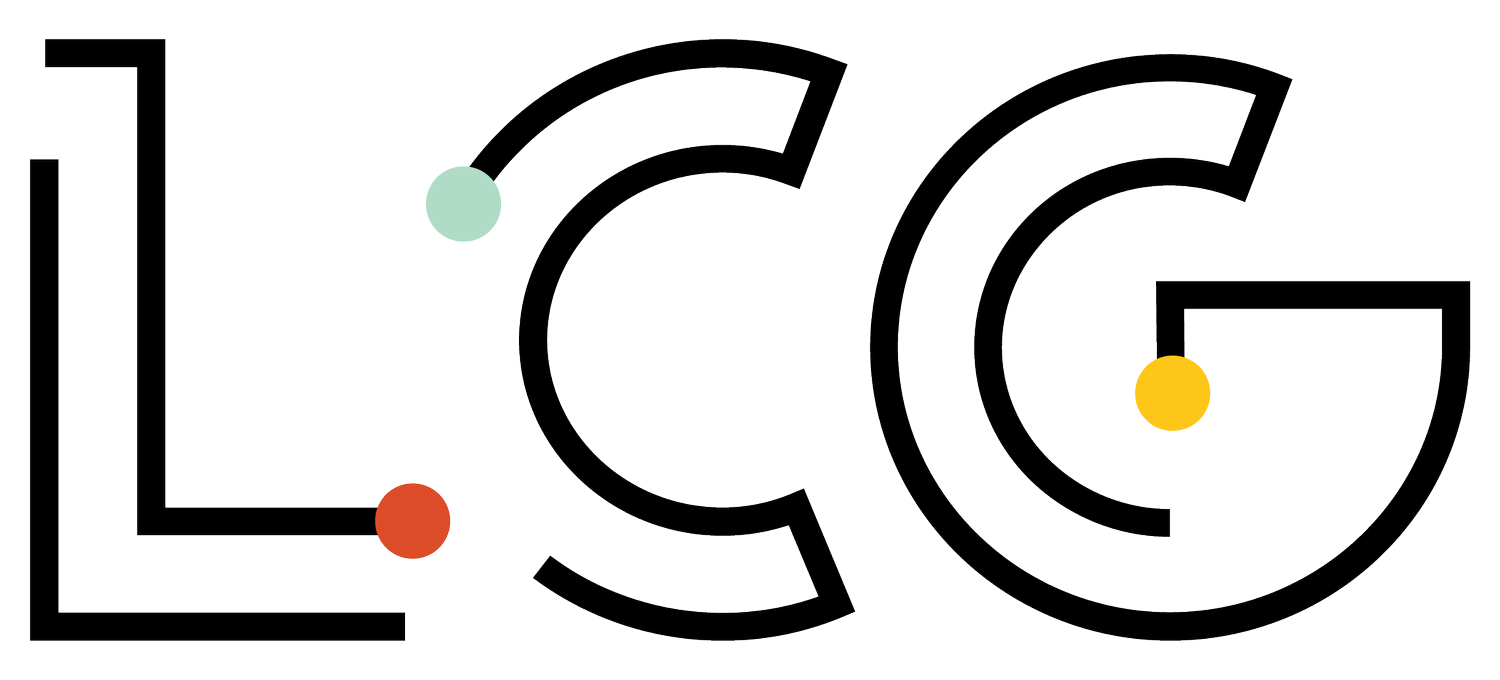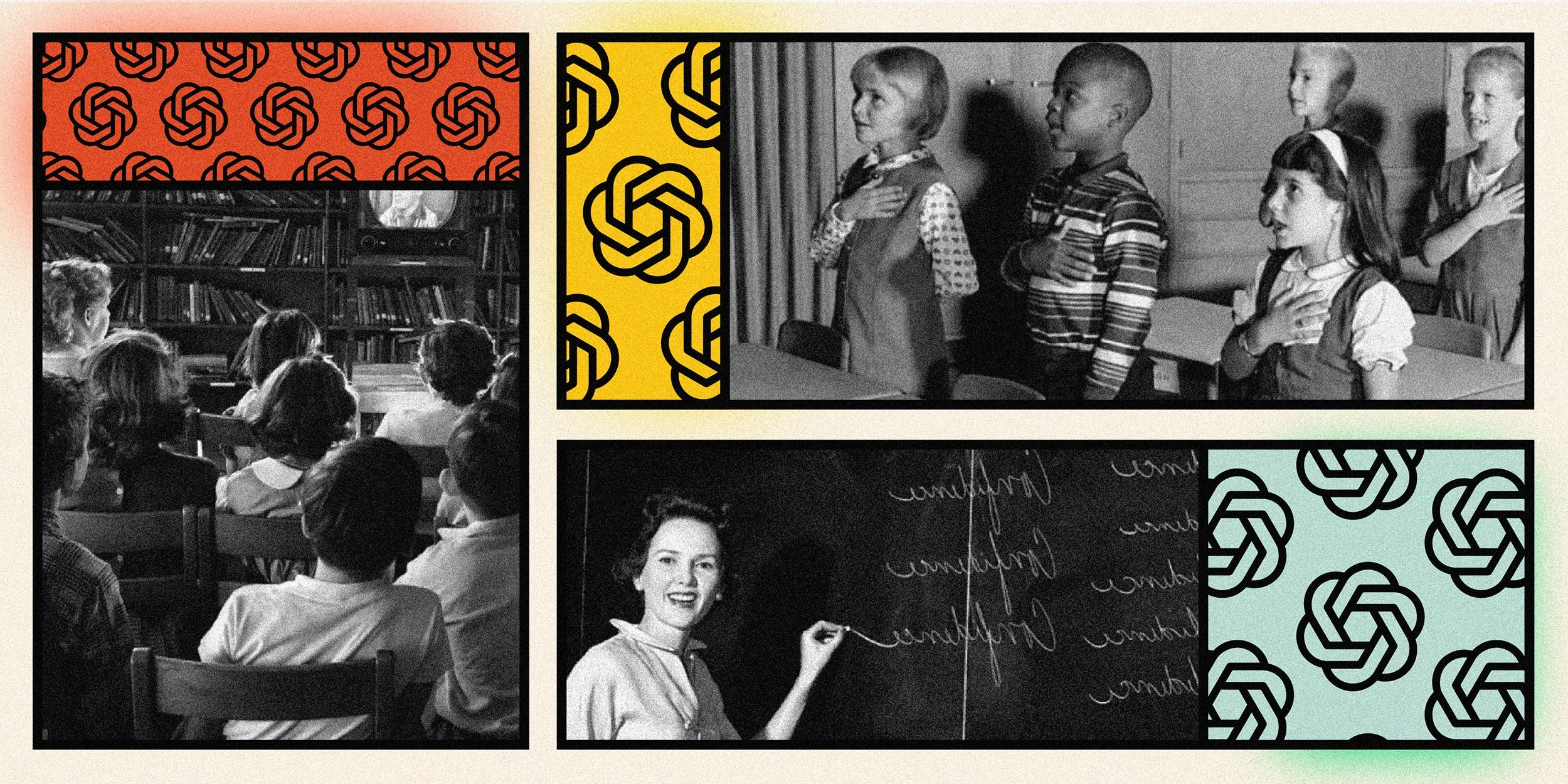Volume 44
This time of year always brings up a lot: celebration, reflection, and urgency. For many of us in EdTech, it’s a full-on sprint to summer. For educators, it’s a transition into a new routine. And through it all, one theme keeps rising to the surface for me: the power of being seen.
This spring, the LCG Foundation had the honor of giving hundreds of microgrants to educators. The only catch? The funds had to be spent on them. Not their students. Not their classrooms. Just them. What came back made us cry. Photos of knife sharpeners, Minnie Mouse watches, and the most elegant garden shovels you’ve ever seen. They said things like, “Thank you for seeing me.” “Thank you for nourishing me.”
It hit us hard because we know how often teachers feel invisible. And the truth is, many of us do. In a world where technology races ahead, productivity keeps climbing, and connection feels harder to come by, we forget that what we really need is to be seen. Fully. As humans.
I’ll be honest, I’ve felt mostly unseen for most of my life. I’ve had moments this year where I’ve wanted to scream just to be seen (See me, as a human!!). The world is asking us to move faster, create more, and show up constantly. But sometimes, all we want is to be acknowledged and feel like we're seen -- that we matter.
When I attended the AI in Education Summit, school and district leaders echoed something important. The hope is that AI gives educators time back to connect with their students in the ways only humans can. BUT that only happens if we protect that time and prioritize relationships. One school leader said, “If AI isn’t helping us build more space for relationships, then what’s the point?”
Ezra Klein recently wrote a thought-provoking article where he said that if he had to choose between a school filled with AI and tech or one with no screens at all, he’d choose the latter. Not because EdTech is inherently bad, but because the human element of learning is irreplaceable. Tech should support and enhance relationships, not get in the way of them.
And while federal guidance on AI is still vague and funding cuts are trickling in more and more, let’s not lose sight of what really matters. Let’s stay thoughtful. Let’s stay human.
To all the educators who have been wrapping up the school year: thank you. You helped move a child into the next chapter of their life. That’s not small. That’s everything.
To everyone in EdTech: we’re deep into the buying season. You’ve been pitching and planning for months, and now we are heading into the thick of it. These next few months matter. If there’s one thing I’ve learned, it’s that leading with empathy and going above and beyond to truly help is what truly cuts through.
Until next time,
Elana
New Course! Level Up Your Education Brand on LinkedIn
We just launched our first-ever online course, designed specifically for education brands. Level Up Your Education Brand on LinkedIn is a self-paced course that shows you how to grow your LinkedIn Company Page in less than five hours a week. You'll learn how to build a strategy, create engaging content, and drive real results without burning out your team.
💡 Early bird pricing is available through the end of June: $395 for full access to lessons, templates, and time-saving tools.
Social Media ROI: Key Metrics at Each Stage of the Marketing Funnel
Measuring what matters, like engagement quality and conversion signals, can help teams prove impact without getting lost in vanity metrics. This infographic helps you identify the key metrics that highlight the value of organic social at each stage of the funnel, from awareness to advocacy.
Just launched
EdTech Good News
A recent poll shared by The 74 offers a refreshing perspective: 72% of college students rate the quality of their classes as “excellent” or “very good,” and half say they’re very confident their education will lead to strong career opportunities.
It’s easy to miss the good news, but this stands out: college students are finding value in their classes and believe in the opportunities ahead.
Marketing & Education Must Reads
Marketing
Your next client might not come from what you post, but from how you show up in the comments. (Richard van der Blom on LinkedIn)
Tracking fewer, more meaningful metrics (like saves, shares, and DMs) can give you a clearer picture of what’s really working on social. (Buffer on Social Metrics)
The TikTok algorithm prioritizes watch time and replays, so hooks and pacing matter more than follower count. (Buffer Algorithm Guide)
YouTube is officially launching U.S. podcast charts, making it easier for creators to grow shows and for listeners to discover new ones. (Tubefilter on YouTube Podcasts)
Using low-key features like Alt Text and Saved Replies can quietly boost engagement and streamline your workflow. (HubSpot on Instagram Features)
Reducing bounce rate starts with matching your content to the intent behind the click, not just the keyword. (Neil Patel on Bounce Rate)
[Helpful Grant-Tracking Resource] With three-fourths of NSF education research funding cut, the gap between tech innovation and evidence-based learning is likely to widen. (Hechinger Report on NSF Education Funding)
Education
EdTech leaders now influence everything from AI to operations; your message must speak to instruction and infrastructure. (We’re dropping a podcast with Keith Krueger about this next month!) (CoSN on the 2025 State of EdTech Leadership)
Rebecca Winthrop argues that our education system isn’t just underperforming, it’s misaligned with the world students are actually growing up in. (Ezra Klein in The New York Times)
AI is being framed as a foundational skill, not a siloed subject, which opens the door for cross-curricular integration across K–12. (TeachAI on AI Literacy)
The pressure is on to show how schools prepare students for economic mobility, especially for those not headed to college. (Brookings on School-to-Career Pipelines)
Long-term digital access depends on more than devices; state leaders are looking for scalable, sustainable infrastructure and inclusive design. (The Learning Accelerator on Digital Equity)
Free Opportunity for Educators
Did you know the Norman Rockwell Museum offers a totally free virtual field trip for K–12 classrooms?
It weaves in art, social studies, ELA, and meaningful conversations about identity, justice, and storytelling. It’s flexible, classroom-ready, and 100% free. Sign up here.
They’re also looking for a few teachers to help spread the word. Small time commitment, fun perks. Reply to this issue if you’re interested.
It seems like users are finally starting to call it X instead of Twitter. Cool. But... who cares? The platform’s getting more toxic by the day, and the data shows reach and engagement are steadily declining. I’m watching it, but let’s just say it’s not where we’re putting our energy right now.
On a brighter note: one of our Nourished Teachers members turned a classroom reflection into a full-blown teacher anthem. It’s sweet, it’s real, and if you’ve ever been in the trenches of a school year—you’ll feel it. It's a vibe.








